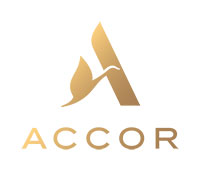
INTERVIEW - JULIEN BARDET, GENERAL MANAGER OF THE SHANGRI-LA PARIS: "ENJOYING A PALACE EXPERIENCE IS NOT THE EXCLUSIVE PRESERVE OF AN ELITE" (France)
Situational intelligence and a culture of excellence punctuate the daily life of the General Manager, who talks to the Journal des Palaces about his vision for his hotel and its teams. |
 |
INTERVIEW - JULIEN BARDET, GENERAL MANAGER OF THE SHANGRI-LA PARIS: "ENJOYING A PALACE EXPERIENCE IS NOT THE EXCLUSIVE PRESERVE OF AN ELITE" (France)
Situational intelligence and a culture of excellence punctuate the daily life of the General Manager, who talks to the Journal des Palaces about his vision for his hotel and its teams. |
Category: Europe - France - Interviews and portraits
- Interviews - Industry leaders
Interview made by Vanessa Guerrier-Buisine on 2024-03-15
 Julien Bardet, General Manager of Shangri-La Paris
Photo credit © Shangri-La Paris
A professional journey that has taken him through nine countries, and into every type of hotels. From Cannes to Paris, via exotic and prestigious destinations, he has forged a career path marked by the pursuit of excellence and the sharing of his passion. He has immersed himself in the best of each house, from properties in the Côte d'Azur such as the Hotel Martinez in Cannes and the Méridien Beach Plaza in Monaco, to boarding the legendary five-masted Club Med 2. He has also left his mark on several Marriott properties, from resorts such as The St.Regis Bali and The St.Regis Bal Harbour in Florida to prestigious city hotels such as The St.Regis New York and The West Hollywood EDITION in Los Angeles.
In 2020, Julien Bardet was appointed to head up one of France's most prestigious hotels, the Shangri-La Paris. With an unrivalled attention to detail and an aversion to approximation, he embodies a modern and inspiring leadership style. His teams praise his management style and the trust he places in them. It's an approach that inspires him to dream of a less intimidating luxury hotel industry.
As patron of this year's Bachelor in International Hospitality and Restaurant Management at Institut Lyfe, he also makes a point of passing on and sharing his passion. A passion and a vision that were the fruit of our discussions with the General Manager, in the intimate setting of his Parisian palace.
What do you find most appealing about the world of luxury hotels?
I find the hotel business fascinating, particularly because it encompasses all the things I love most in life:
- Meeting people I would never have met if I hadn't been in this profession; the teams I work with, and of course, the guests we are lucky enough to welcome.
- Travel: at the age of 45, I've been lucky enough to work in nine countries, and that's really linked to my business.
- Gastronomy and the epicurean side of the profession.
- Palaces also have a mystical side. We have a duty of discretion, and we know many of our guests' secrets. It's quite magical to have the privilege of knowing them, and to have the responsibility of keeping quiet.
Finally, my fascination with the hotel industry stems from the quest for excellence, which is first and foremost human, through service. As company directors and palace managers, the first thing we sell is service. The experience is, of course, reflected in the culture of the hotel and its design, but also in the service provided to guests.
What do you see as the main challenges and opportunities facing the luxury hotel industry?
The type of guest who comes to our properties is changing compared to what we saw twenty years ago.
Enjoying a palace experience is not the exclusive preserve of an elite and does not have to be intimidating. It could be for breakfast, a tea-time, in one of our starred restaurants or not. For each of these experiences, it has to resonate with the audience who wants to enjoy it.
What professional encounters have marked your career?
One of the first people to awaken something in me about attention to detail was Philippe Abraham. In 2001, I oversaw restaurants at Club Med 2, and he was Head of Cruises. He really pushed me to go into detail and to focus on guest satisfaction.
And when I became Hotel Manager of the St. Regis in New York, I was very impressed. Hermann Elger, now CEO of Forbes Travel Guide, was my General Manager. He regularly said that we are lucky enough to work in extraordinary places, in a luxurious environment, but that if this luxury is not treated with heart and humility, it can quickly be perceived as arrogance. Whereas, if you put your heart and humility into it, it can quickly be interpreted as elegance.
You've lived in nine countries in the course of your career. How have these experiences influenced your vision of the hotel business and service?
First and foremost, I think that on a human level, it forces you to be adaptable and agile. It develops these skills further because you see different horizons, and have to adapt to different cultures, languages, teams, locations, markets, and types of hotels, whether they be resorts, city-centre hotels, classic luxury hotels or luxury lifestyle hotels.
I feel privileged to have been able to see so much, but it also requires sacrifices. When you have a family life, you impose this adaptability on the whole family. It's important to make sure that the people in your life are also ready for these changes. After all, there are regular uprooting and things have to be rebuilt at every stage.
What do you enjoy most about your job as General Manager?
When you're the general manager of a hotel, you surround yourself with people who are technically stronger than you in their area of expertise.
When you're the general manager of a Palace, you surround yourself with people who are among the best in their field. What we expect from a general manager is to have questions. To be able to challenge the teams and coordinate everything.
What I like most is the diversity of the issues we may have to deal with in the course of a day. Whether it's going into a room with the general manager and the technical director to plan the redecoration of that room, then having a conversation with our head of human resources about selecting the most suitable profiles, before talking to the chef and the catering manager about a choice of crockery and the summer menu. At the same time, being called in to welcome a guest, and just after that, having to consider what commercial strategy we are going to adopt for the forthcoming Olympic Games, and wondering whether the current occupancy levels are in line with our action plan.
What about the Shangri-La, Paris?
I consider myself privileged to be able to work in such a prestigious setting, with a historical aspect that is part of the DNA and pillars of being a palace in France.
The building was constructed at the same time as the Eiffel Tower, and was occupied by Roland Bonaparte, Napoleon's nephew. I run the closest palace to the most visited monument in the world, and I realize every day that I'm very lucky in what I do.
Can you tell us a story about your time at this hotel?
In a few days' time, four years ago, I'll be heading to this hotel in the middle of COVID-19.
Paris and the whole of France were completely confined, as was Los Angeles, from where I was leaving. I arrive at a hotel that has already been closed for a fortnight.
The estate agents were closed, and the container containing our belongings would not be shipped to France until the lockdown was lifted. So, I arrived with my wife and our two children. We spent 109 nights in one of our two presidential suites, in a closed hotel, with three security guards, two technicians and a duty manager on duty 24 hours a day.
How would you define luxury hotels? Could you expand on the concept of “orchestrated happiness”?
As general manager, we are like an orchestra conductor, making sure that all the players work in harmony and that the melody is pleasing to the ear and in tune with the guest experience. “Orchestrated happiness” means that our first priority is to ensure that our guests' experience is the best it can be.
You run one of France's 31 palaces. What is the 'extra' that guests expect from this level of hotel? Could you give an example of the very 'palatial' attention you give to your guests?
When you enter a palace, something magical has to happen, and it doesn't have to be forced. By definition, nothing in a palace should be ordinary. All that guests come for, the daily mission of our teams, is the extraordinary. Our guests come to us seeking an extraordinary experience, something out of the ordinary, something different from what you're used to in other properties.
For example, if you get married in our hotel, at every wedding anniversary, we send a gift for you to remember that day. When guests come to celebrate their wedding anniversary on our property, our guest relation service will find a souvenir of their wedding, with the help of their staff or relatives. We will place this souvenir in their room to welcome them.
How do you create the extraordinary when our guests are already familiar with the very best wherever they go?
People make the difference. Particularly at night, we must deal with minor hitches. Are we happy with this? No. Does this happen regularly? Yes.
On the other hand, we have an opportunity that's quite extraordinary, which is that from the moment we identify that there's something that hasn't gone exactly as the guest wanted, we know about it. And it's then up to the person in possession of this information to do what they must do. They must be completely free to turn this situation around - that's what guest recovery is all about.
Could you elaborate on the concept of guest recovery?
The first step is to connect with our guests because not all our guests are necessarily going to voice their dissatisfaction. The first thing to do is to make sure that at each stage of the customer journey, you ask the customer questions and make sure that they have a good stay because that opens the door to feedback.
Once you have this information, the teams need to know that management has total confidence in them and that they have 'carte blanche' to ensure that they have the right and the duty to do what needs to be done, with a significant budget, to turn this situation around and to ensure that the guest leaves satisfied. I don't tolerate people who have an exchange with the guest being in this “let me ask my manager” situation. No, the problem is there, you deal with it, and then you explain to your manager what happened and whether anything has to be documented because there are offers and so on.
In English, we distinguish between “recovered guest” and “compensated guest”. Just because you make a commercial gesture doesn't necessarily mean that the guest will leave happy. A card and a bottle of champagne in the room won't solve the guest's problem. All our teams are therefore trained through a Guest Recovery programme, which I deliver myself.
What advice would you give to a young person looking for a career in the luxury hotel industry?
Two inspirational quotes from Steve Jobs come to mind: “Your work is going to fill a large part of your life, and the only way to be truly satisfied is to do what you believe is great work. And the only way to do great work is to love what you do”. And the second is a question he often asked his employees, “Is this the best you can do?”.
Every time you interact with someone, ask yourself, when you've finished, “Was that the best version and can I do better than that?” Because if you've already identified that you can do better, do it right away. And in a palace, that's expected; that you raise the bar. That's the magic of the palace; if you have 400 employees and all 400 of them are doing it at the same time, that already means that tomorrow's experience will be better than today's.
 Shangri-La Paris, a listed building
Photo credit © VRX Studios / Shangri-La Paris
 L'Appartement Prince Bonaparte at Shangri-La Paris
Photo credit © 2022 VRX Studios / Shangri-La Paris
 Les Lounges at Shangri-La Paris
Photo credit © 2022 VRX Studios / Shangri-La Paris
 The pool at the Shangri-La Paris is bathed in natural light
Photo credit © 2022 VRX Studios / Shangri-La Paris
 La Bauhinia restaurant at the Shangri-La Paris and its majestic Baccarat crystal chandelier
Photo credit © 2022 VRX Studios / Shangri-La Paris
 Lobby of Shangri-La Paris
Photo credit © 2022 VRX Studios / Shangri-La Paris
 Some rooms and suites at the Shangri-La Paris offer breathtaking views of the Eiffel Tower
Photo credit © 2022 VRX Studios / Shangri-La Paris
 The Botanist Bar at the Shangri-La Paris offers a hushed, plant-based atmosphere
Photo credit © Maelle Saliou / Skiss
|
|






